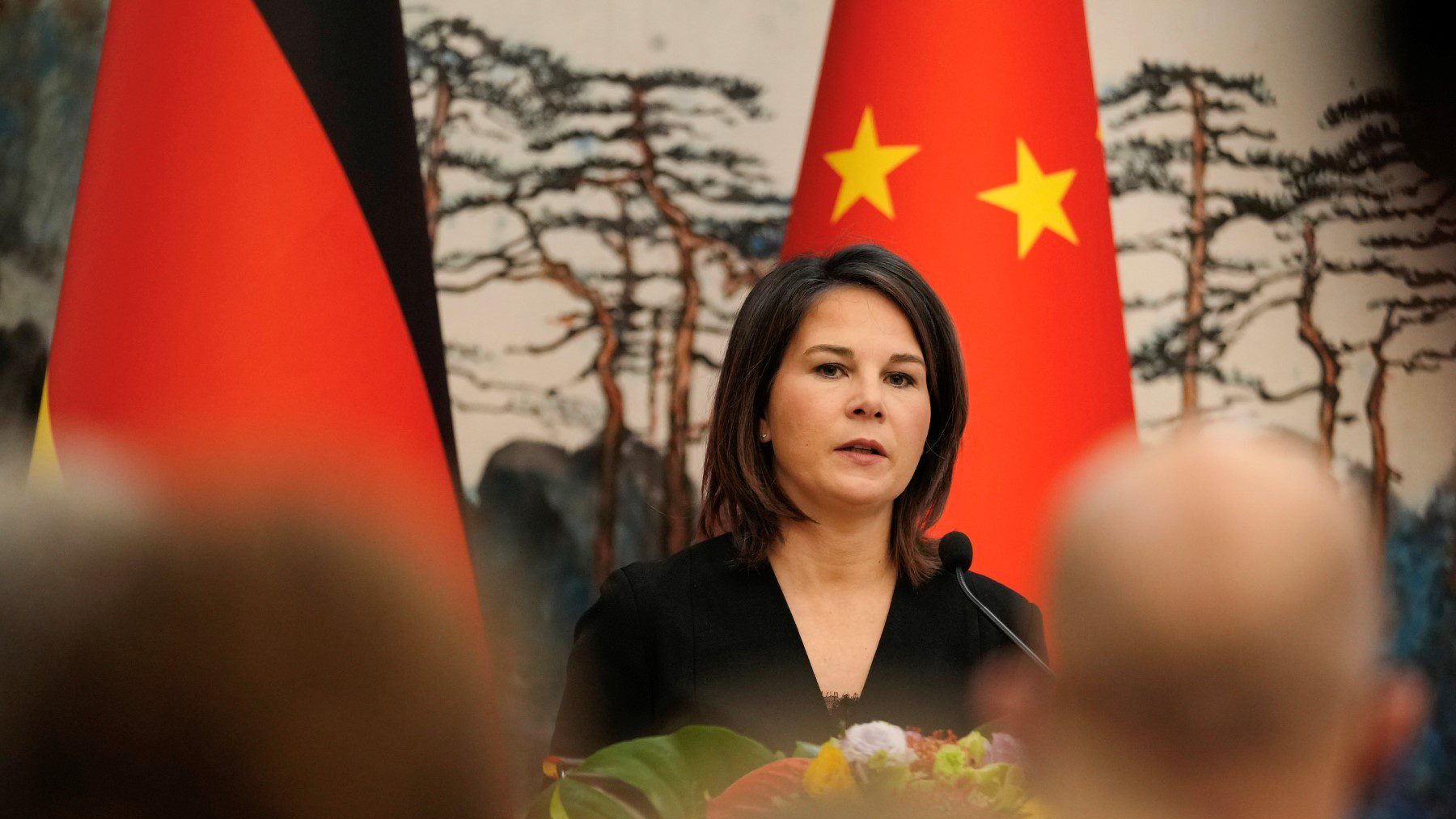
Germany’s Foreign Minister Annalena Baerbock attends a joint press conference with Chinese Foreign Minister Qin Gang at the Diaoyutai State Guesthouse in Beijing on April 14, 2023.
Photo: Suo Takekuma / POOL / AFP
French President Emmanuel Macron’s latest controversial remarks have caused strong reactions in Germany, where the government has reaffirmed its full solidarity with Taiwan and the United States against communist China.
The German government refused to comment immediately on Macron’s contentious remarks. But this did not prevent the Foreign Ministry spokesman from sending Beijing a signal of its “great concern” about the situation in the Taiwan Strait—particularly following the military manoeuvres launched by Beijing in this extremely sensitive region.
Emmanuel Macron’s claim that Europe should take a balanced position between Beijing and Washington is seen as nonsense and dangerous by the German political class—a point of view defended notably by SPD MP Metin Hakverdi, who was on a trip to the United States and was interviewed on the subject by Politico. The MP said he was keen to see things clarified as soon as possible by a member of the German government. The CDU, the party on the opposite part of the German political spectrum, shares the same view. CDU MP Katja Leikert described Emmanuel Macron’s position as “extremely short-sighted.”
The three-day visit to China by German Foreign Minister Annalena Baerbock, immediately after Emmanuel Macron’s departure, cleared up any ambiguities. Her objective was to reaffirm European unity on the Taiwan issue: like the French president a few days earlier, but in a totally different tone, Baerbock wanted to speak “in the name of Europe.” Before her departure, she said she wanted to put forward “the common European conviction that a unilateral change of the status quo in the Taiwan Strait, and in particular a military escalation, would be unacceptable.”
According to the FAZ, Baerbock followed up on this theme, during her visit to the city of Tianjin, by stating that, with regard to China, Germany and its EU partners are not only “close to each other in terms of interests and values” but also pursue “common strategic approaches.”
Beyond the China issue, the German government also expressed concern about the consequences of the French president’s remarks on the transatlantic relationship. Germany, which has always been very keen to show its loyalty to Washington, fears that the French provocation will weaken discussions with the United States, particularly on the thorny issue of the Inflation Reduction Act, which advances American protectionism and puts European industries at a disadvantage.
